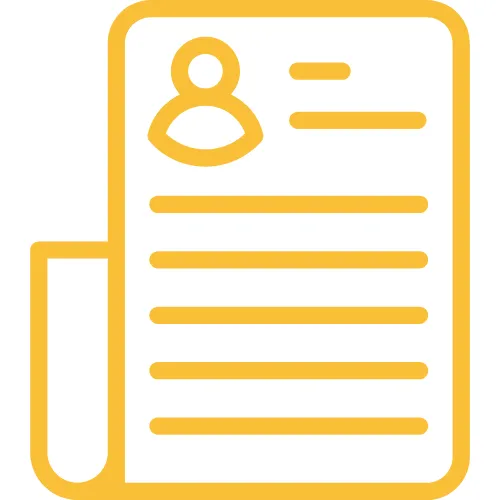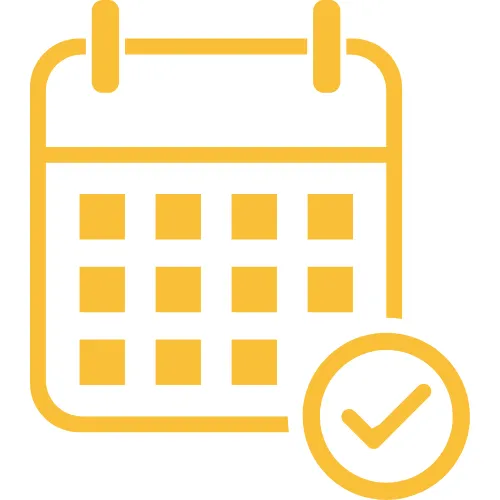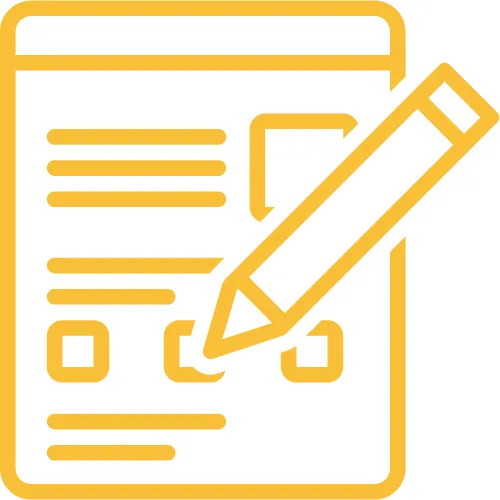Welcome to Congregate Connect LLC
Providing Support with
Care and Compassion
At Congregate Connect LLC, our goal is to enhance the quality of life for individuals with developmental disabilities. Our dedicated professional team is committed to offering opportunities to develop their skills. In our residential facility, clients will connect with others facing similar conditions. We ensure continuous guidance and support throughout their stay with us.
Welcome to Congregate Connect LLC
Providing Support with Care and Compassion
At Congregate Connect LLC, our goal is to enhance the quality of life for individuals with developmental disabilities. Our dedicated professional team is committed to offering opportunities to develop their skills. In our residential facility, clients will connect with others facing similar conditions. We ensure continuous guidance and support throughout their stay with us.
Our Mission
"We'll be there when you need us"
To provide value-driven services to persons with developmental disabilities. With dedication and commitment, we will provide compassionate care that supports each individual that we are privileged to serve.
Application of our training components will help develop the mind, body and spirit of each individual which will encourage positive choices, promote in- dependence, and provide opportunities for personal growth
Our Mission
"We'll be there when you need us"
To provide value-driven services to persons with developmental disabilities. With dedication and commitment, we will provide compassionate care that supports each individual that we are privileged to serve.
Application of our training components will help develop the mind, body and spirit of each individual which will encourage positive choices, promote in- dependence, and provide opportunities for personal growth
For inquiries about our services, scheduling appointments, and more, please contact
Congregate Connect LLC : (562) 955-3388
For inquiries about our services, scheduling appointments, and more, please contact
Congregate Connect LLC :
(562) 955-3388
Who We Are
We are a multi-faceted company that is vendored to provide a wide range of services and programs. All of which are strategically designed to improve and enhance the lives of those we serve
Who We Are
We are a multi-faceted company that is vendored to provide a wide range of services and programs. All of which are strategically designed to improve and enhance the lives of those we serve

We're thrilled to assist you.
Steps to Enroll
Rely on us to provide exceptional care and support for your loved ones.

Visit Us Today
Schedule A Tour
Allow us to show you around our facility.

We'd love to hear your feedback
Answer Our Survey
Share your thoughts on our services with us.

We're thrilled to assist you.
Steps to Enroll
Rely on us to provide exceptional care and support for your loved ones.

Visit Us Today
Schedule A Tour
Allow us to show you around our facility.

We'd love to hear your feedback
Answer Our Survey
Share your thoughts on our services with us.
Services
We Support
Parenting Support
Service Code: 108
Vendor Number: PX0759
• Parental Stress Management
• Maintaining a Household
• Navigating the School System
• Healthy Play & Developing Bonds
Independent Living Skills
Service Code: 520
Vendor Number: HX0755
• Sell-Help/Care Skills
• Social Relationship Skills
• Avoiding Personal/ Financial Crisis
• Forensic Services
Support Living Skills
Service Code: 896
Vendor Number: HX0767
• Community Awareness
• Healthy Cooking Skills
• Self-Advocacy Skills
• Specialized Services
Consumers Learn
We Care
Registered Nurse Services
Service Code: 744
Vendor Number: PX0760
• Clinical/Medical Support
Requiring an RN License
Licensed Vocational Nurse Services
Service Code: 742
Vendor Number: PX0773
• Clinical/Medical Support Requiring an LVN License
• Glucose Monitoring
• Blood Pressure Monitoring
American Sign Language Interpreter
Service Code: 642
Vendor Number: PX0775
• American Sign Language Support & Training
• Pictures Exchange Communication System
Consumers Improve
We Teach
Housing Services
Service Code: 101
Vendor Number: PX0731
• Property Rental
• Referral Assistance
• Moving Cost Assistance
Personal Assistance
Service Code: 063
Vendor Number: PX0758
• Intense Specialized Support
• Forensic/Judicial Support
• Paramedical Support
Adult Residential Facility
• CPP Consumers Okay
• Consumers Transitioning from IMD or
DD/MI Unit Okay
• Structured Living Environments
• Consumers with complex case
management issues
Consumers Succeed
Services
We Support
Parenting Support
Service Code: 108
Vendor Number: PX0759
• Parental Stress Management
• Maintaining a Household
• Navigating the School System
• Healthy Play & Developing Bonds
Independent Living Skills
Service Code: 520
Vendor Number: HX0755
• Sell-Help/Care Skills
• Social Relationship Skills
• Avoiding Personal/ Financial Crisis
• Forensic Services
Support Living Skills
Service Code: 896
Vendor Number: HX0767
• Community Awareness
• Healthy Cooking Skills
• Self-Advocacy Skills
• Specialized Services
Consumers Learn
We Care
Registered Nurse Services
Service Code: 744
Vendor Number: PX0760
• Clinical/Medical Support
Requiring an RN License
Licensed Vocational Nurse Services
Service Code: 742
Vendor Number: PX0773
• Clinical/Medical Support Requiring an LVN License
• Glucose Monitoring
• Blood Pressure Monitoring
American Sign Language Interpreter
Service Code: 642
Vendor Number: PX0775
• American Sign Language Support & Training
• Pictures Exchange Communication System
Consumers Improve
We Teach
Housing Services
Service Code: 101
Vendor Number: PX0731
• Property Rental
• Referral Assistance
• Moving Cost Assistance
Personal Assistance
Service Code: 063
Vendor Number: PX0758
• Intense Specialized Support
• Forensic/Judicial Support
• Paramedical Support
Adult Residential Facility
• CPP Consumers Okay
• Consumers Transitioning from IMD or
DD/MI Unit Okay
• Structured Living Environments
• Consumers with complex case
management issues
Consumers Succeed
Frequently Asked Questions
Do I need to live in a particular area to access services from the Counseling Center?
Congregate Connect LLC's physical office is situated in Paramount, CA. Clients also have the option to participate in therapy remotely through our virtual telehealth platform and private pay.
What are the next steps to access support?
To start the enrollment process, you can call, text, email, or visit our “contact” page. Our staff will then get in touch to gather information about your insurance, needs, and to match you with the appropriate therapist. If you have any questions, don’t hesitate to reach out!
What are the hours of operation for the Counseling Center?
Congregate Connect LLC’s Counseling Center is open Friday through Sunday from 8:00 a.m. to 6:30 p.m. Services are available by appointment only; walk-ins are not accepted.
What resources are available for individuals facing mental health challenges?
It’s okay not to be okay. Here are some helpful resources for mental health support:
988: National Suicide Prevention Hotline (click the blue button in the top right corner of this website to access the page)
855.845.7415: Peer-Run Warm Hotline (non-emergency support for mental and emotional needs in California)
Text 741.741: Connect with a trained crisis counselor for free, 24/7 crisis support via text (available in English and Spanish)
805.964.524: Domestic Violence Solutions (24-hour crisis and information hotline)
888.868.1649: ACCESS Line (24-hour crisis response and services in Santa Barbara)
805.564.3696: Standing Together to End Sexual Assault (24-hour hotline)
888.334.2777: SAFTY (Safe Alternative for Treating Youth)
800.971.0016: Institute on Aging, Friendship Line
866.488.7386 or text "START" to 678-678: The Trevor Project (suicide prevention support for LGBTQ+ individuals)
1.800.273.8255 or text 838255: Veterans Crisis Line
1.800.662.HELP (4357) (TTY 800-846-8517) or text your 5-digit ZIP code to 435748 (HELP4U): SAMHSA’s National Helpline for treatment referrals and information (available in English and Spanish)
Frequently Asked Questions
Do I need to live in a particular area to access services from the Counseling Center?
Congregate Connect LLC's physical office is situated in Paramount, CA. Clients also have the option to participate in therapy remotely through our virtual telehealth platform and private pay.
What are the next steps to access support?
To start the enrollment process, you can call, text, email, or visit our “contact” page. Our staff will then get in touch to gather information about your insurance, needs, and to match you with the appropriate therapist. If you have any questions, don’t hesitate to reach out!
What are the hours of operation for the Counseling Center?
Congregate Connect LLC’s Counseling Center is open Friday through Sunday from 8:00 a.m. to 6:30 p.m. Services are available by appointment only; walk-ins are not accepted.
What resources are available for individuals facing mental health challenges?
It’s okay not to be okay. Here are some helpful resources for mental health support:
988: National Suicide Prevention Hotline (click the blue button in the top right corner of this website to access the page)
855.845.7415: Peer-Run Warm Hotline (non-emergency support for mental and emotional needs in California)
Text 741.741: Connect with a trained crisis counselor for free, 24/7 crisis support via text (available in English and Spanish)
805.964.524: Domestic Violence Solutions (24-hour crisis and information hotline)
888.868.1649: ACCESS Line (24-hour crisis response and services in Santa Barbara)
805.564.3696: Standing Together to End Sexual Assault (24-hour hotline)
888.334.2777: SAFTY (Safe Alternative for Treating Youth)
800.971.0016: Institute on Aging, Friendship Line
866.488.7386 or text "START" to 678-678: The Trevor Project (suicide prevention support for LGBTQ+ individuals)
1.800.273.8255 or text 838255: Veterans Crisis Line
1.800.662.HELP (4357) (TTY 800-846-8517) or text your 5-digit ZIP code to 435748 (HELP4U): SAMHSA’s National Helpline for treatment referrals and information (available in English and Spanish)
Blogs

Understanding the Legal Rights of People with Disabilities
"Understanding the legal rights of people with disabilities is key to building a society where equality, inclusion, and dignity are not just ideals, but a lived reality for all."
In an ideal world, every individual, regardless of their abilities, would have equal opportunities to live a fulfilling life. Unfortunately, people with disabilities often face significant challenges, including discrimination, lack of accessibility, and exclusion from mainstream society. However, over the years, legal frameworks have been established to protect the rights of individuals with disabilities, ensuring that they are treated with dignity, fairness, and respect.
In this blog, we will explore the legal rights of people with disabilities, focusing on key laws and protections that have been put in place to promote inclusion and equality.
1. The Americans with Disabilities Act (ADA)
One of the most significant pieces of legislation protecting the rights of people with disabilities in the United States is the Americans with Disabilities Act (ADA), signed into law in 1990. The ADA aims to prevent discrimination and ensure equal access to various aspects of life, including employment, public services, transportation, and accommodations.
Key Provisions of the ADA:
Employment Rights: The ADA prohibits discrimination in the workplace against qualified individuals with disabilities. Employers are required to provide reasonable accommodations to employees with disabilities, allowing them to perform their job duties effectively.
Public Services and Transportation: The ADA mandates that public services, such as government programs and transportation, must be accessible to people with disabilities. This includes accessible buses, trains, and other public transportation options.
Public Accommodations: Businesses, hotels, restaurants, and other public places must make reasonable modifications to their facilities to ensure they are accessible to people with disabilities. This includes wheelchair ramps, accessible restrooms, and clear signage.
Telecommunications: The ADA also requires that telecommunication services be accessible, ensuring that people with hearing impairments can communicate through relay services.

2. The Rehabilitation Act of 1973
The Rehabilitation Act of 1973 is a landmark piece of legislation that was one of the first to address the rights of people with disabilities in the United States. Section 504 of the Rehabilitation Act specifically prohibits discrimination against individuals with disabilities in programs and activities that receive federal financial assistance. This includes schools, healthcare providers, and public institutions.
Key Features of the Rehabilitation Act:
Non-Discrimination in Federally Funded Programs: Section 504 ensures that people with disabilities have the same opportunities as others to participate in educational and employment programs that receive federal funding.
Reasonable Accommodations: Just as with the ADA, the Rehabilitation Act requires employers and institutions to provide reasonable accommodations to employees and students with disabilities.
3. The Individuals with Disabilities Education Act (IDEA)
The Individuals with Disabilities Education Act (IDEA) ensures that children with disabilities receive a free and appropriate public education (FAPE) in the least restrictive environment (LRE). IDEA is a federal law that requires schools to provide special education services to students with disabilities, tailored to their specific needs.
Key Features of IDEA:
Free and Appropriate Public Education (FAPE): Students with disabilities are entitled to a free education that is tailored to their individual needs, providing them with the resources and services necessary for success in school.
Individualized Education Program (IEP): Each student with a disability must have an Individualized Education Program (IEP) that outlines the special education services and accommodations they will receive.
Least Restrictive Environment (LRE): IDEA mandates that students with disabilities should be educated in a setting that is as close to a general education environment as possible, with appropriate supports and services.
4. The Fair Housing Act (FHA)
The Fair Housing Act (FHA) is a federal law that protects individuals from discrimination in housing based on race, color, national origin, religion, sex, familial status, and disability. The FHA ensures that people with disabilities have the right to live in a home or apartment of their choice and to request reasonable accommodations or modifications to make their living environment accessible.
Key Features of the FHA:
Reasonable Modifications and Accommodations: Landlords and property owners are required to make reasonable accommodations or modifications to ensure accessibility for tenants with disabilities. This might include allowing a service animal in a "no pets" building or installing grab bars in a bathroom.
Accessibility in Housing: New multi-family housing must meet certain design standards to ensure it is accessible to people with disabilities, such as wheelchair access and wider doorways.
5. The Air Carrier Access Act (ACAA)
The Air Carrier Access Act (ACAA) prohibits discrimination by airlines on the basis of disability. This law ensures that people with disabilities have equal access to air travel, including the right to request assistance at the airport and on flights.
Key Features of the ACAA:
Accessible Airports and Aircraft: Airports and airlines are required to provide accessible services for passengers with disabilities, including seating accommodations, assistance with boarding and deplaning, and accessible restrooms.
Non-Discriminatory Policies: Airlines cannot refuse to sell tickets to people with disabilities or impose additional charges for accommodations.
6. The Disability Discrimination Act (DDA) – International Protections
While the ADA is a key law in the U.S., similar protections exist around the world. For example, the Disability Discrimination Act (DDA) in the United Kingdom provides similar protections, ensuring that individuals with disabilities are not discriminated against in employment, education, and public services.
Key Features of the DDA:
Employment Rights: The DDA prohibits discrimination in the workplace and requires employers to provide reasonable accommodations for employees with disabilities.
Public Access and Services: Businesses, transportation services, and public places must make their facilities accessible to people with disabilities.
7. The Convention on the Rights of Persons with Disabilities (CRPD)
On an international level, the Convention on the Rights of Persons with Disabilities (CRPD) is a human rights treaty adopted by the United Nations in 2006. The CRPD provides a comprehensive framework for protecting the rights of people with disabilities globally, focusing on equality, accessibility, and the right to participate fully in society.
Key Features of the CRPD:
Equality Before the Law: The CRPD ensures that people with disabilities have the same legal recognition and protection as others, without discrimination.
Right to Independent Living: The treaty emphasizes the importance of enabling people with disabilities to live independently, with access to support and services that promote autonomy and inclusion.
Access to Education and Employment: The CRPD calls for inclusive education systems and the removal of barriers to employment for individuals with disabilities.
Conclusion
Legal protections for people with disabilities are essential for creating a more inclusive and equitable society. While there is still progress to be made, laws like the ADA, IDEA, and the CRPD represent significant steps toward ensuring that people with disabilities have equal access to opportunities and services. By understanding and upholding these legal rights, we can work together to create a world where everyone, regardless of ability, can thrive.

Facebook
Instagram
Youtube
TikTok